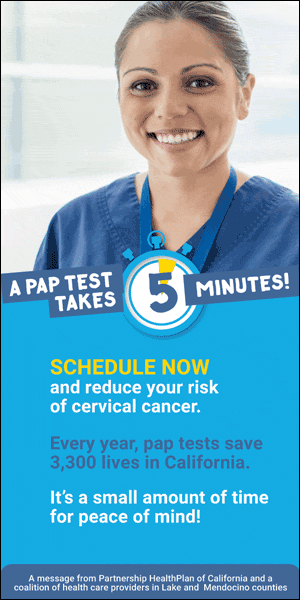

Free cancer screening events are taking place in a pair of locations in Louisville's West End a few days ago.
Black Americans face high risk of death from various kinds of cancer, including breast cancer and cancer of the prostate, compared to other groups, based on the National Cancer Institute. On Saturday, two Louisville medical systems are offering free screenings for both types of cancers in predominantly Black regions of the city in an effort to decrease barriers of looking after.
Norton Healthcare provides free cancer of the prostate screenings at 1702 W. Broadway, in the Russell neighborhood. UofL's James Graham Brown Cancer Center, together with Kentucky African Americans Against Cancer (KAAAC) and also the Kentucky Cancer Program, are offering mammogram screenings initially Gethsemane Baptist Church on Algonquin Parkway.
Prostate Cancer More Fatal For Black Men
Overall, prostate cancer affects 1 out of every 9 men. For Black men, the chances increase to in 7.
Dr. Steven Patton, a household medicine physician with Norton Community Medical Associates, said while no definitive link has been found, a number of factors could play in to the higher risk faced by Black men. Those include social determinants of health insurance and lack of use of car, said Patton, who is Black.
“But just men in general, I believe, we all tend to delay doing things, by itself,” Patton said. “[We have a] 'If it isn't broken, don’t repair it mentality' versus being in front of it. That kind of puts us in quite a predicament at times, and that's why I feel that the cancer of the prostate screening event is worth focusing on. It provides us a chance to take our overall health back.”
Patton said the event's location was selected in an attempt to increase use of take care of Black men. He's pushing men in the area to consider benefit of the screening, noting that prostate cancer doesn't have symptoms, especially in initial phases.
Prostate cancer may be the second most treatable cancer, Patton said, however it gets to be more dangerous the more it is going undetected. Black men have the greatest mortality rate in the disease, and therefore are twice as likely to die when compared with white men.
“Normally, when you are screened for cancer of the prostate and you catch it early enough, the chances of death from that are pretty low if they can reach it in time and get correct treatments, biopsies and surgical procedures,” Patton said.
Screenings are suggested starting at 40 for males who've a parent or gaurdian or sibling with prostate cancer, at 45 for Black men with any genealogy and also at 50 for those men. Blood tests would be the main method used, though digital rectal exams are available.
Norton is opening the big event to up to 50 people, and appointments must be made online or by calling 502-629-7777. COVID-19 tests. Flu vaccinations can also be found.
“I’m hoping to serve at least one person,” Patton said. “That’s what I want- If we can change one person’s life, if they have access, if this is something that we can supply to one person, then your whole event makes it worth while in my experience.”
LATE Cancer of the breast DETECTION LEADS TO HIGHER DEATH RATES
Black women and white women develop breast cancer at nearly exactly the same rate. But based on the CDC, Black women die from this at a rate 40% higher than white women.
Black women have a higher possibility of developing more aggressive forms, like triple negative cancer of the breast. They're also not as likely to detect breast cancer continuing.
“When taking a look at the number of African American women are diagnosed, we all know that's less than white women,” said Janikaa Sherrod, a cancer control specialist with KAAAP. “But when you are looking at the death of Black women when compared with white women, it's more. A variety of it is due to late-stage diagnosis.”
Access to healthcare plays a role in when cancer is detected. Historical inequities faced by Black women have created barriers to such resources, that has led to the heightened risk related to breast cancer.
“When we're taking a look at cancer overall, we have to take into consideration the historical context that race in the usa has definitely been correlated with socioeconomic status and other economic and social conditions, and people are correlated to increased risk and poor outcomes among the Black communities.” Sherrod said. “We need to take into consideration all those factors when we're looking at why you will find higher death rates of cancer within the Black community when compared to white community.”
Sherrod, who's Black, said stationing the mobile mammogram screening bus in different regions of the town helps tear down those barriers by bringing healthcare straight to the city. From 8:30 a.m. to 3 p.m. Saturday, the bus is going to be at First Gethsemane Baptist Church, located at 1159 Algonquin Parkway.
Insurance is yet another barrier that often prevents adequate care, but Sherrod said funds from the Kentucky Women's Cancer Screening Program eases that burden for that uninsured by covering the price of the screening.
“If that screening returns plus they require a follow-up diagnostic, we've funds that cover that as well with the program,” she said. “If a lady is also diagnosed with the van, then those screening funds also cover treatment.”
Appointments could be scheduled by calling (502) 644-8907. Screening is limited to women 40 and older, and who don't currently have known breast problems.
Correction: All men must start cancer screenings at 50. The age was incorrect inside a previous version.













